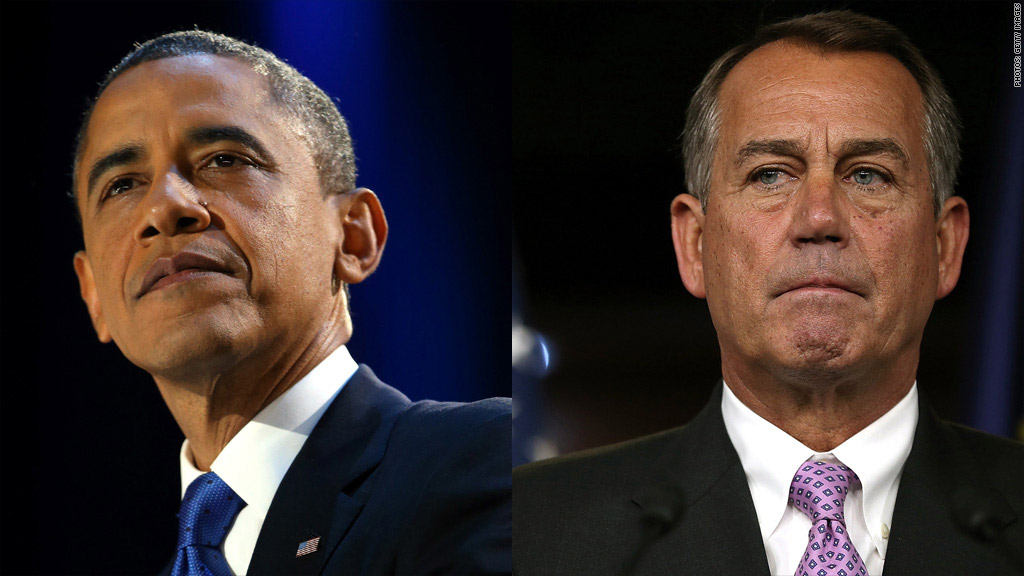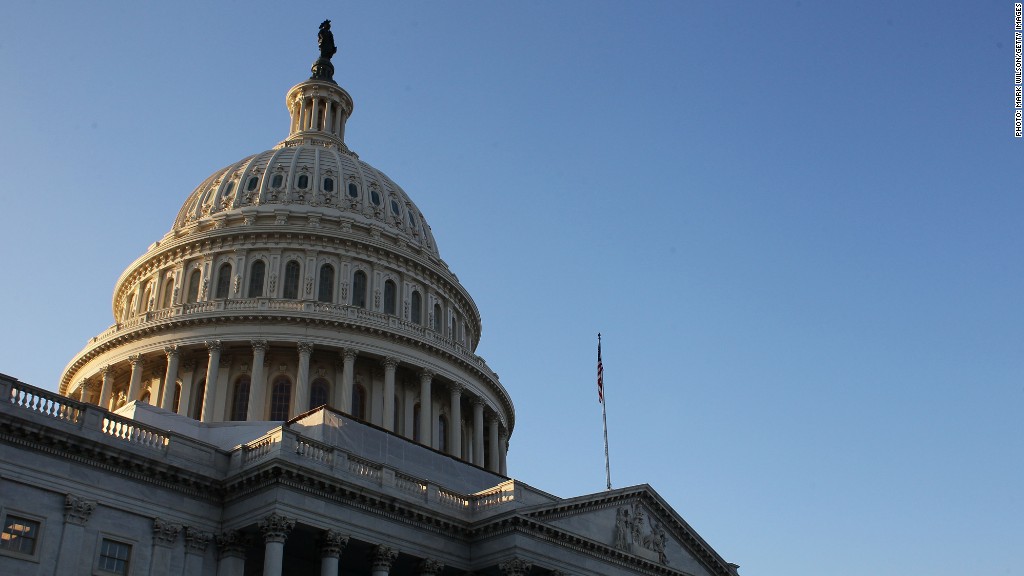
It won't happen without a fight -- potentially a really ugly fight. And it may even push the country over the fiscal cliff for a time.
But now that President Obama has been re-elected, and Democrats have retained control of the Senate, there's a far greater chance that high-income households will soon face higher tax bills.
"It seems likely," said Republican tax lobbyist Ken Kies of the Federal Policy Group. "I can't imagine President Obama will agree to extend the Bush tax cuts for everyone."
Indeed, senior administration officials have said that the president would veto any package that extends them for high-income taxpayers. (Related: California OKs tax hikes)
But that doesn't mean House Republicans will back down on their insistence that no one's tax rates go up.
On Wednesday, House Speaker John Boehner held fast to the Republican line.
"We won't solve the problem of our fiscal imbalance overnight," he said. "And we certainly won't solve it by simply raising tax rates or taking a plunge off the fiscal cliff."
Obama staked his re-election campaign and his first term on the issue of asking the rich to "pay their fair share." And he has repeatedly called for the expiration of the portion of the Bush tax cuts that apply to households making more than $200,0000 ($250,000 if married).
But there may be more than one way to thread the needle on taxing the rich.
For instance, said Sean West, the U.S. policy director of the Eurasia Group, a potential compromise threshold for "rich" could be $1 million instead of $250,000.
Or lawmakers could agree to cap the value of some tax breaks on the rich. That may help clear a path to a short-term deal to avert the fiscal cliff and buy lawmakers time to work out a more comprehensive debt-reduction package that includes tax reform.
While higher taxes on the rich may be likely, "the question is how much more and what form it takes," said Douglas Holtz-Eakin, president of the American Action Forum, a GOP think tank.
In other words, a tax hike could come via higher tax rates (anathema to Republicans) or through base-broadening, which would limit tax breaks available to high-income households.
Since Obama overwhelmingly won the electoral vote but only narrowly captured the popular vote over Mitt Romney, the president and Boehner could engage in a "standoff of mandates," Holtz-Eakin said.

And what will be needed is principled compromise.
One way to move in that direction, he said, is if the president sends a full-fledged bill to the Hill laying out his debt-reduction proposals in detail. That could help start the process.
"The Hill needs air cover to say we don't want to do this but the president asked us," Holtz-Eakin said. And once lawmakers put in their own modifications, those who need cover can say they "fixed" it.



